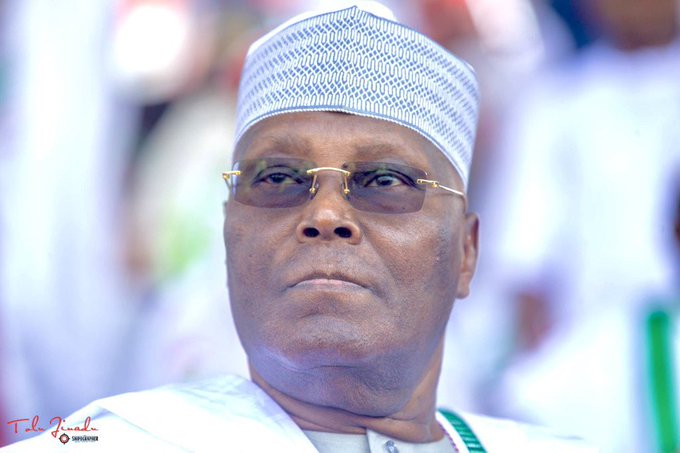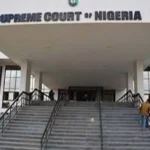Amongst the grounds upon which the candidate of the Peoples Democratic Party (PDP), in the last presidential election, Atiku Abubakar, is seeking an overturn of the judgment of the Presidential Election Petition Court (PEPC), is its failure to take into cognisance the “Doctrine of Legitimate Expectation” regarding the failure of INEC to conduct the election in accordance with its own guidelines and the Electoral Act, 2022.
The doctrine of Legitimate Expectation was first developed in English law as a ground of judicial review in administrative law to protect a procedural or substantive interest when a public authority rescinds a representation made to a person.
In Nigeria, the doctrine of legitimate expectation demands that a public authority shall respect and apply its stated position or sustained practice in exercising its powers on members of the public.
However, Atiku in his Notice of Appeal dated September 18, and filed by his lead counsel, Chief Chris Uche, SAN, submitted that the failure of the tribunal to apply the said doctrine is enough ground for the apex court to set aside the entire decision of the lower court.
- ‘Gawuna is coming’, APC supporters celebrate Kano tribunal verdict
- Why Kano Tribunal Sacked Gov Yusuf
Specifically in ground seven of his Notice of Appeal, the former Vice President submitted that, “the lower Court erred in Law when it failed to nullify the presidential election held on February 25, 2023 on the ground of noncompliance with the Electoral Act 2022, when by evidence before the Court, the 1st Respondent (INEC) conducted the election based on very grave and gross misrepresentation contrary to the principles of the Electoral Act 2022, based on the ‘doctrine of legitimate expectation’”.
He pointed out that the Electoral Act 2022, made the use of the Bi-modal Verification Accreditation System (BVAS) and INEC’s Results Viewing (IReV) portals mandatory in the conduct of the 2023 general elections, adding that, INEC through its Chairman, Professor Yakubu Mahmood, publicly gave guarantees, undertakings, clear and unambiguous representations to candidates and political parties that polling units results were mandatorily required to be electronically transmitted or transferred directly by the Presiding Officers.
He argued that, “there was no evidence before the lower Court that the 1st Respondent altered its aforesaid Guidelines and Regulations to remove the said requirement of electronic transmission of the results of the election directly from the polling units to the 1st Respondent’s Collation System”.
It is the submission of Atiku that, INEC “conducted the said Presidential Election based on the gross misrepresentation to the Appellants and the general voting public that the Presiding Officers were going to electronically transmit the results of the said election directly from the polling units to the 1st Respondent’s Collation System.
He added that, “Contrary to the above unambiguous representations, undertakings and guarantees, the 1st Respondent neither deployed the electronic transmission of election results nor the electronic collation system in the said election, sabotaging the raison d’etre for the enactment of the new Electoral Act 2022 and the introduction of the technological innovations.
“Rather than hold the 1st Respondent (INEC) as a public institution accountable to the representations that it made pursuant to its statutory and constitutional duties which created legitimate expectation on the part of the Appellant’s, the lower court wrongly exonerated the 1st Respondent of any responsibility by holding that the use of the technological innovations to guarantee transparency was not mandatory”.
It was the appellant’s further position that the February 25 poll was “conducted based on very grave and gross misrepresentation and was therefore oppressive to the Appellants and thus not free and fair, and not in accordance with the principles of the Electoral Act 2022, and not protected by the presumption of regularity, as well as the preamble and the fundamental objectives and directive principles of State Policy of the Constitution of the Federal Republic of Nigeria 1999 (as amended) adopted by the lower court.
“The grave misrepresentation negated the legal presumption of official regularity in favour of the 1st Respondent.
Besides, Atiku told the apex court that INEC as a public institution is not above the law, and not entitled to breach its own regulations with impunity, after clear and unambiguous representations upon which parties have placed reliance and are entitled to legitimate expectations.
“The said election ought to have been nullified by reason of the said gross misrepresentation by a public institution based upon the “doctrine of legitimate expectation” as applied by the Supreme Court as a policy Court….”
Dissatisfied, Atiku claiming that the lower tribunal erred in law in affirming the outcome of the February 25 poll, has amongst others asked the Supreme Court to set aside the entire decision of the tribunal.
Atiku, in addition, prayed the apex court to after voiding Tinubu’s election, declare him as the authentic winner of the poll.
Atiku, who came second in the poll, is claiming that he and not Tinubu actually won the majority of the lawful votes cast at the election, but the electoral umpire, however, manipulated the process in favour of Tinubu.

 Join Daily Trust WhatsApp Community For Quick Access To News and Happenings Around You.
Join Daily Trust WhatsApp Community For Quick Access To News and Happenings Around You.

